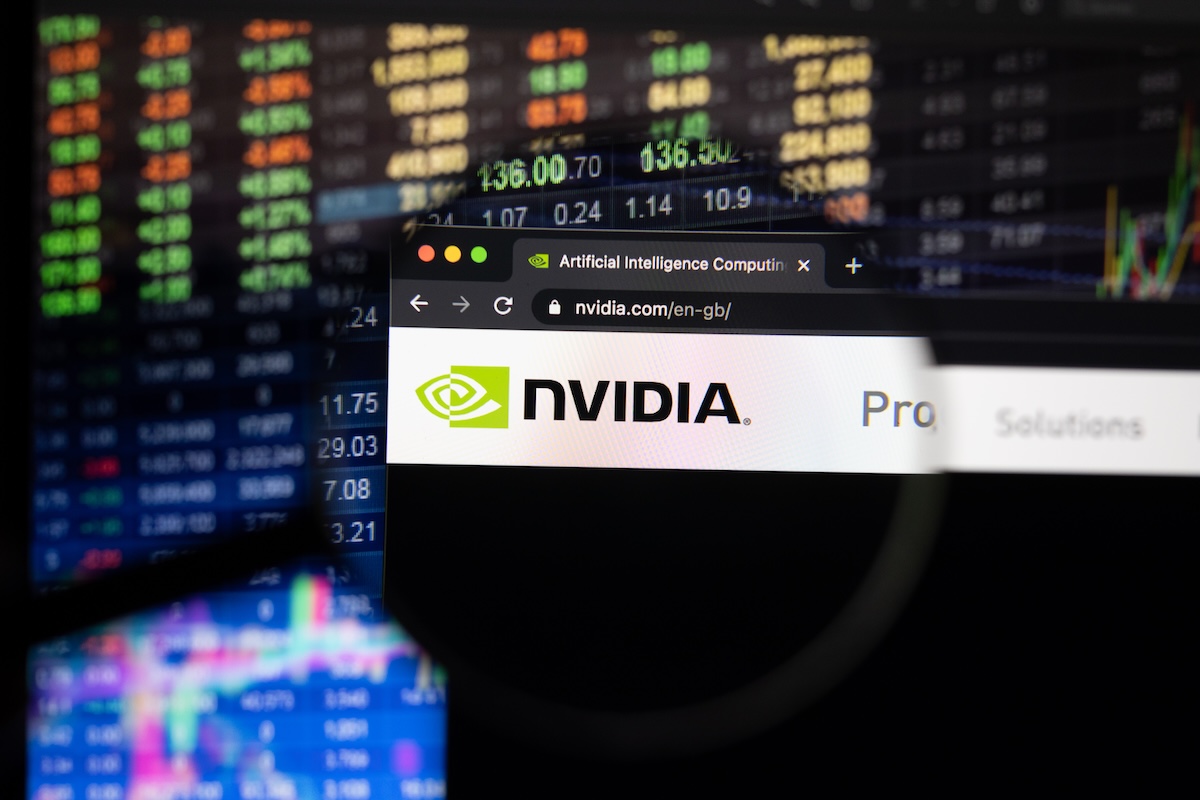Stock Update
Lyft enters deal with Tensor Auto to roll out a fleet of AVs
Lyft, Inc. (LYFT) is partnering with autonomous vehicle maker Tensor Auto to add hundreds of robotaxis to its fleet in North America and Europe beginning in 2027.
Read more about Lyft enters deal with Tensor Auto to roll out a fleet of AVs
Intel finally releases a new 18A chip, but will it be enough to spark a turnaround?
News of the 18A launch did not appear to excite too many investors as Intel’s stock was only able to gain nearly 1% on Thursday
Read more about Intel finally releases a new 18A chip, but will it be enough to spark a turnaround?
Ken Griffin sounds alarm on de-dollarization as critics say U.S. is becoming a “third world country”
Investors are quietly hedging against U.S. sovereign risk as America’s debt, inflation, and political dysfunction fuel fears of a fiscal reckoning
Read more about Ken Griffin sounds alarm on de-dollarization as critics say U.S. is becoming a “third world country”
IREN surges on new multi-year AI cloud contracts and then sinks on convertible note offering
IREN (IREN) said this week that it had secured new multi-year AI cloud contracts for Nvidia Blackwell GPU deployments
Read more about IREN surges on new multi-year AI cloud contracts and then sinks on convertible note offering
Coinbase seeks national trust charter but ‘has no intention of becoming a bank’
Coinbase (COIN) plans to apply for a national trust company charter from the U.S. Office of the Comptroller of the Currency (OCC)
Read more about Coinbase seeks national trust charter but ‘has no intention of becoming a bank’
Archer’s stock tanks after a rumored partnership with Tesla never came to pass
Angry investors call out ‘misleading’ promotion from Archer Aviation (ACHR)
Read more about Archer’s stock tanks after a rumored partnership with Tesla never came to pass
Netflix faces PR backlash as 'cancel Netflix' searches break Google
As Elon Musk calls for a boycott, Google searches to “cancel Netflix” hit record highs, but with the streamer no longer reporting subscriber counts, the real impact may remain hidden
Read more about Netflix faces PR backlash as 'cancel Netflix' searches break Google
“Freight recession shows no end in sight” — Truck sales collapse as economy sends mixed signals
Heavy truck sales have plunged to recessionary levels even as U.S. GDP growth accelerates, exposing a widening divide between freight and the broader economy
Read more about “Freight recession shows no end in sight” — Truck sales collapse as economy sends mixed signals
Desperate home sellers slash prices at near record pace as buyers stay away
Despite easing mortgage rates, one in six U.S. home sellers cut their asking price in August, the highest level for any August on record
Read more about Desperate home sellers slash prices at near record pace as buyers stay away
Qualcomm’s expansion beyond smartphones continues with Arduino acquisition
Qualcomm announced that it has acquired Arduino, a nonprofit Italian open-source hardware and software platform that includes a community of more than 33 million developers
Read more about Qualcomm’s expansion beyond smartphones continues with Arduino acquisition
AST SpaceMobile gets downgraded with a Sell as analyst warns of ‘painful corrections’
AST SpaceMobile’s (ASTS) stock has been on a tear this year, soaring 254% on hopes its satellites will connect cell phones directly to broadband.
Read more about AST SpaceMobile gets downgraded with a Sell as analyst warns of ‘painful corrections’
CoreWeave acquires UK startup Monolith to service industrial and manufacturing enterprises
On a day when it seemed as though all of Wall Street was buzzing about the multibillion partnership between OpenAI and AMD (AMD), AI hyperscaler CoreWeave (CRWV) also announced a deal
Read more about CoreWeave acquires UK startup Monolith to service industrial and manufacturing enterprises
Galaxy Digital’s new investor app puts it in competition with Robinhood
After having built its name in the institutional crypto space, this is Galaxy’s (GLXY) first move into consumer finance
Read more about Galaxy Digital’s new investor app puts it in competition with Robinhood
Nuclear stocks continue to soar but experts are now urging caution
The booming investor appetite for nuclear energy stocks is perhaps best reflected in the meteoric rise of shares in small modular reactor (SMR) startup Oklo, Inc. (OKLO).
Read more about Nuclear stocks continue to soar but experts are now urging caution
OpenAI’s $6.6 billion employee windfall could shake San Francisco’s housing market
A $500 billion valuation and massive secondary share sales have handed OpenAI’s workers enough liquidity to buy every home sold in San Francisco last year
Read more about OpenAI’s $6.6 billion employee windfall could shake San Francisco’s housing market
Rupee’s day of reckoning: Trade war, outflows push currency to the brink
Trade deficits, foreign outflows, and Trump’s tariffs converge to test RBI’s restraint
Read more about Rupee’s day of reckoning: Trade war, outflows push currency to the brink
Does Nvidia owe most of its success to ChatGPT?
Nvidia’s exponential revenue growth didn’t happen by accident. It exploded only after ChatGPT sparked a global race to build AI infrastructure.
Read more about Does Nvidia owe most of its success to ChatGPT?
DoorDash gets into the robotic delivery game with the launch of Dot
DoorDash will initially offer the services in Tempe and Mesa, Arizona before expanding the commercial deployment into other US markets.
Read more about DoorDash gets into the robotic delivery game with the launch of Dot

















